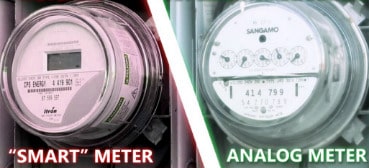Less than 3% of 2009’s taxpayer- and ratepayer-funded smart meters now deliver full customer benefits, a recent study shows.
An Aug. 30 Request for Information, or RFI, from the U.S. Department of Energy on how best to use $3 billion in infrastructure bill smart grid funding is raising expectations among energy management services providers about a new round of smart meter deployments by utilities across the country.
It is also raising questions about unrealized benefits from 2009’s taxpayer- and ratepayer-funded billion-dollar American Recovery and Reinvestment Act, or ARRA, smart meter investment.
By the end of 2022, there will be over 124 million smart meters installed in 78% of U.S. households, according to data released in April by the Edison Foundation’s Institute for Electric Innovation. But less than 3% of today’s smart meters fulfill 2009 promises of customer savings and that must be prevented in the coming Energy Department-funded deployment, according to a September analysis by Mission:data Coalition.
“Utilities used federal and state funds to deploy smart meters and many explicitly promised to empower customers” to lower bills and earn rewards for supporting system peak demand reductions, said Mission:data President and analysis lead author Michael Murray. “The public policy failure is that utilities benefited from returns on capital expenditures and reduced operational costs but did not deliver those customer benefits,” he said.
There are reasons customer benefits have been limited, utilities said.
“Our web portal allows customers access to historic data and helps them take the steps to obtain near real-time data,” said Fort Collins Utilities Energy Services Manager and Policy Advisor John Phelan. But that “is an impractical, time-consuming process and customers lose interest in it after a few weeks,” he said.
Utilities can streamline real-time data access to enable greater customer and system benefits with “non-discriminatory” and “interoperability” standards, Murray and other smart meter advocates said. But that may compromise concerns of customers and regulators about system security and customer privacy protections, utilities said.
Full article: Study: “less than 3% of today’s smart meters fulfill 2009 promises of customer savings”; DOE Wants $3B More for Program
